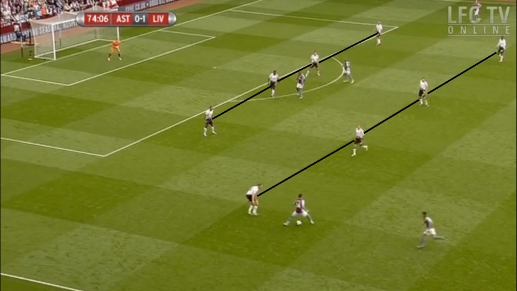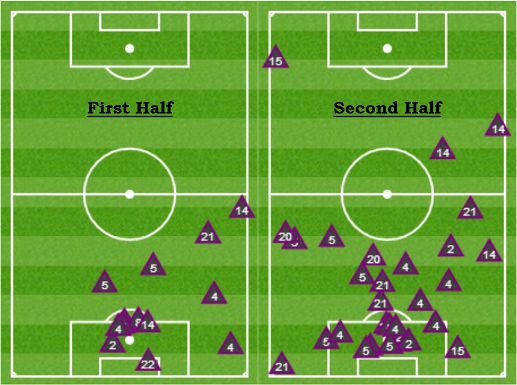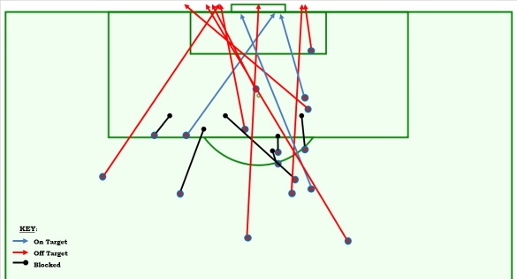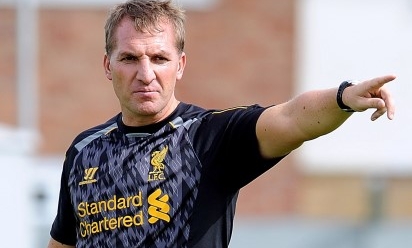Column: LFC display tactical shrewdness
In her latest Talking Reds column, Kate Cohen looks at the way Liverpool adapted tactically to secure a second win of the season on Saturday.

Liverpool's second half performance against Aston Villa demonstrated the defensive application and grit required to win matches in order to compete for Champions League places this season.
Despite the scoreline and goalscorer being identical in Liverpool's two wins, the second-half performance against Aston Villa differed tactically to the previous three halves of football played this season.
Liverpool dropped deeper and were controlled and disciplined, allowing Aston Villa to see more of the football, instead limiting the spaces they had to play and attack into. This change, in contrast to the first game and the first half of the Aston Villa match, where Liverpool dominated for large parts, showed the pragmatism required to win difficult matches in the Premier League.
A tactical win
As in the first game, Liverpool's start was bright, with the Reds dominating and dictating the flow of the match.
Daniel Sturridge's fantastic goal capped off a bright start, but as Liverpool's first-half dominance petered out, it was evident that an attacking and open game would be a dangerous prospect - especially against a team like Aston Villa, who have pace and power on the counter attack.
"Tactically, we had to play differently today, and I was delighted with the players. First half, we controlled the ball well and controlled the spaces well. Second half, we had to control the zones, defend half the pitch and deny them the space to run into - and obviously that means conceding a wee bit more of the ball, but it was great for our concentration."
Brendan Rodgers
The second half saw Liverpool drop deeper, with Philippe Coutinho and Jordan Henderson dropping into midfield to create two banks of four when defending.

The tactical discipline from the players, who, as Rodgers said, were instructed to "control the zones", was important in nullifying Aston Villa. As the image above shows, both wide players (in this case, Henderson and Aly Cissokho) got back to help out and created two banks of four on the edge of the box.
As with much of the second half, this forced Aston Villa to play in front of Liverpool's defensive block, or look to go around the outside. Whenever there was a slight bit of space in between Liverpool's defensive lines, there was a player quick to close down the space.

The contrast in the number of defensive clearances for Liverpool; in the second half (where 30/42 clearances occurred) Liverpool sat deeper and dealt well with the pressure.
This deep defensive block limited the amount of space Aston Villa had to attack in behind Liverpool's defence, eliminating one of their major attacking strengths - counter attacking. Unable to play to their strengths, many of Aston Villa's attacks broke down, with Liverpool frustrating the opposition, often forcing them to shoot from distance or play difficult passes in tight areas, which Liverpool was able to deal with.

Aston Villa's shots on goal - with Simon Mignolet only being called on three times, and twice pulling off good saves.
Stand-out performers
Defensively, the performances of Kolo Toure and Simon Mignolet were outstanding. Toure, who is fast becoming a fan favourite (and who Simon Steers highlighted as the missing piece to Liverpool's jigsaw), produced a man of the match performance - again showing his leadership and organisational skills and winning his individual battle against the dangerous Christian Benteke.
Simon Mignolet, off the back of his penalty-saving heroics against Stoke, also pulled off two magnificent reflex saves to deny Benteke. Despite often being largely untroubled by Aston Villa's wayward shooting, Mignolet did what all good 'keepers must do when playing for Liverpool - he maintained concentration and did what was required when called upon.
Positives to take away
The first half was impressive, and Liverpool looked good in possession, but as Aston Villa grew into the match, the ability for the team to adjust and execute a tactical change was impressive.
"We had real domination in the first half and sometimes you've got to dig deep. I'm very confident we'll end up with a good goals record - but the most important statistic is the win, and we won."
Brendan Rodgers
Rodgers summed up Liverpool's second-half performance well, with the team digging deep to ensure they come away with the only thing that matters - the win. Liverpool was able to play pragmatic football, realising that, no matter how attractive the football played is, winning was the only thing that matters. With 36 more Premier League fixtures to contend (starting with a biggie - at home to Manchester United), and many more wins to earn, Liverpool have now already proven twice that they know how to do just that.
Such a solid tactical and defensive performance should be seen as a positive, and bodes well for remainder of a very long and important season.
Follow the author @kate_lfc_sfc.



